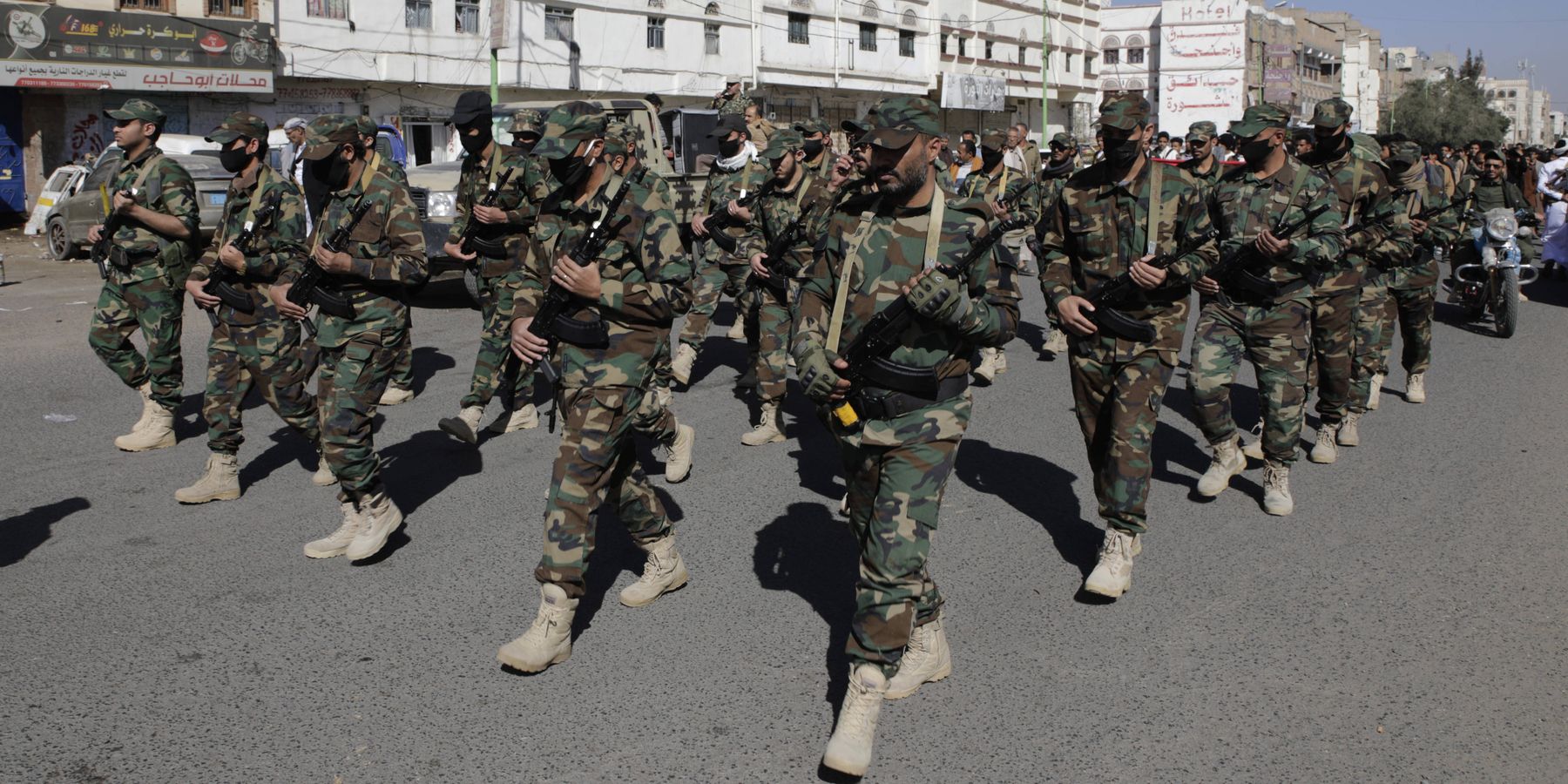The ineffective U.S. military campaign against the Houthis in Yemen is now a year old.
Based on new reports, based on two sources in the Jerusalem Post, there are hints that that the incoming Trump administration may be planning to escalate it. The paper says the Biden administration is reportedly planning to intensify the bombings before Jan. 21. Then, according to the Post, Trump will be looking to ramp up the military campaign even more once he is sworn in.
Former Trump administration Iran envoy Elliott Abrams told the Post, “Trump will not stand for having US Navy ships attacked every day by the Houthis using Iranian missiles. … He will hit the Houthis harder, and he will threaten Iran that if a missile [that] Iran supplied kills an American, Iran will get hit directly.”
Trump did not have anything to say about the bombing campaign against the Houthis during his presidential campaign, but escalation in Yemen would be consistent with the general hawkish leanings of his national security team and it would be in line with Trump’s approach to Yemen when he was last in the White House.
Biden’s unauthorized war in Yemen began last January in response to Houthi missile and drone attacks on Red Sea shipping. The Houthis launched their attack as a protest against Israel’s war in Gaza, and they are likely to continue them as long as that war lasts. Unsurprisingly, the bombing campaign has not deterred the Houthis from launching additional attacks on commercial shipping.
Judged on its own terms, the U.S.-led intervention in Yemen has been a failure.
The conflict has received relatively little attention over the last year, but it is still consuming U.S. resources and contributing to the U.S. Navy’s overstretch. U.S. forces struck targets in Yemen again last week. Meanwhile, the Houthis and Israel have continued exchanging blows over the last several months. Israel launched strikes on the international airport in the capital Sanaa and on several ports in late December after another Houthi missile launch into Israeli territory.
In addition to possibly escalating the military campaign, the Trump administration may also place the Houthis back on the Foreign Terrorist Organization (FTO) list. When the outgoing Trump administration designated the group in early 2021, the director of the World Food Program at the time, David Beasley, said, “We are struggling now without the designation. With the designation, it's going to be catastrophic.”
The Biden administration removed the group from this list after the United Nations and aid groups warned that the designation would have devastating effects on Yemen’s economy and exacerbate the humanitarian crisis.
Hawkish critics condemned the Biden administration’s removal of the Houthis as “weakness,” and they have been clamoring for redesignation ever since. Trump’s choice for national security adviser, Mike Waltz, has been a vocal advocate of redesignating the Houthis since the first weeks of the war in Gaza.
Now that the U.S. is directly fighting the Houthis, it seems likely that Waltz would be even more adamant in pushing for this change. Trump’s nominee for secretary of state, Sen. Marco Rubio (R-Fla.), has also been a proponent of redesignation. Placing the Houthis back on the FTO list would still have all the same severe downsides as before, but Trump and his team may not care about the destructive consequences that designation would have for the people of Yemen.
If Trump believes that redesignation will make him look “tougher” than Biden, that might be all that Waltz and Rubio need to get him to agree.
Congress never debated or voted to authorize a bombing campaign in Yemen. While the Biden administration claims that the president has Article II authority to conduct these operations without congressional approval, there is no real legal justification for keeping U.S. ships engaged in hostilities for a year unless Congress has explicitly authorized it. The lack of authorization is unlikely to matter to the incoming Trump administration. During the first term, Trump presided over unauthorized U.S. involvement in a different military campaign in Yemen, namely the Saudi coalition intervention. When Congress passed a war powers resolution to demand an end to U.S. involvement, he vetoed the measure.
The incoming president had a habit in his first term of escalating the wars he inherited, from Somalia to Yemen to Afghanistan (though he eventually passed a deal with the Taliban to withdraw U.S. troops from that country). Based on his previous disregard for Congress’s role in matters of war, Trump is unlikely to be bothered by the illegality of the war in Yemen.
Escalation in Yemen would be a mistake. It is unlikely to achieve anything except to kill more Yemenis, put U.S. sailors at risk, and waste more expensive munitions. The Houthis have not been discouraged from launching attacks after more than a year of military action, and they are unlikely to respond differently once Trump is in office.
The U.S. ought to be using all its influence and leverage to bring the war in Gaza to an end in order to wind down the wider regional conflict with which it is interwoven. Beyond that, the U.S. should be looking for ways to extract itself from Middle Eastern conflicts rather than finding excuses to expand them.
- The cost of US fighting Houthis in the Red Sea just went up ›
- The US military's anti-Houthi campaign still isn't working ›
- New neocon manifesto: Keep US troops in the Middle East | Responsible Statecraft ›
















